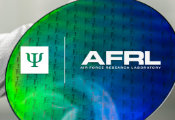Demonstrating High-Fidelity Gates and the World’s Largest Entangled Logical Qubit State in Atom Computing’s Flagship Systems
Demonstrating High-Fidelity Gates and the World’s Largest Entangled Logical Qubit State in Atom Computing’s Flagship Systems
Microsoft Shut down Microsoft Quantum Center Sydney, Which Has Been Operated in Partnership With the University of Sydney for Seven Years
According to Australian media reports, tech giant Microsoft has shut down its quantum computing research facility in Australia after seven years of collaboration with the University of Sydney. Microsoft also confirmed this week that it would close Microsoft Quantum Sydney, which it has been running in collaboration with the University of Sydney since 2017, and relocate its quantum research and commercialisation efforts to its headquarters in the United States.
QUANTUMWIRE.COM
Quantinuum Partners with Microsoft in New Phase of Reliable Quantum Computing with Breakthrough Demonstration of Reliable Logical Qubits
Quantinuum Partners with Microsoft in New Phase of Reliable Quantum Computing with Breakthrough Demonstration of Reliable Logical Qubits
Pasqal Expands Access to Quantum Computing Capabilities
Pasqal Expands Access to Quantum Computing Capabilities
Materials Developed at Purdue University Incorporated Into New Microsoft Quantum Qubit Platform
Materials Developed at Purdue University Incorporated Into New Microsoft Quantum Qubit Platform
Topological Quantum Processor Marks Breakthrough in Computing
Topological Quantum Processor Marks Breakthrough in Computing
The Science Behind Microsoft’s Quantum Breakthrough: A Story Decades in the Making
The Science Behind Microsoft’s Quantum Breakthrough: A Story Decades in the Making
Atom Computing: Building Quantum Supercomputers with Microsoft
Atom Computing: Building Quantum Supercomputers with Microsoft
Microsoft Has Introduced Two New Capabilities for Azure Quantum Elements: Generative Chemistry and Accelerated DFT
Microsoft recently announced the launch of two new purpose-built capabilities for Azure Quantum Elements: Generative Chemistry and Accelerated Density Functional Theory (DFT), aiming to further increase the productivity and accessibility of chemistry and materials science research. Generative Chemistry can scientists discover novel, synthesizable, and useful molecules quickly. Accelerated DFT offers substantial increases in speed compared to other density functional theory codes.

 Category
Category























